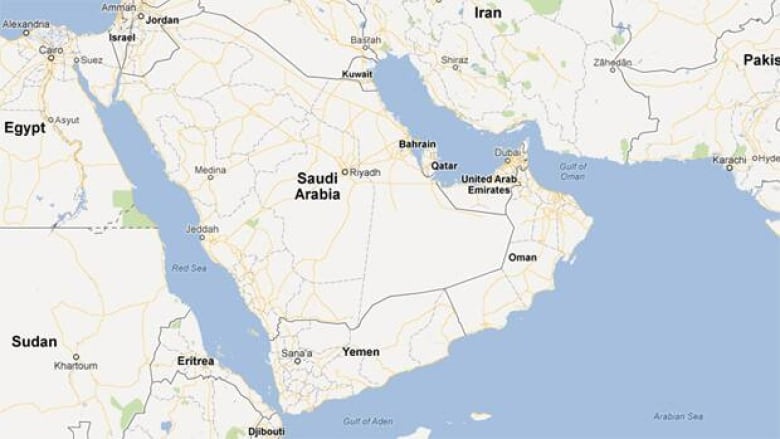Iran to sue Google over 'Persian Gulf' absence on maps
Body of water not labelled on Google Maps, raising Tehran's ire

Iran says it will sue Google over dropping the name of the Persian Gulf on Google Maps.
The threat is directed atthe search engine company because it left the body of water between Iran and the Arabian Peninsula nameless on its online map service.
Foreign Ministry spokesman Ramin Mehmanparastsaid that if Google does notadd the name of the Persian Gulf, it will face "serious damages." Mehmanparast told the semiofficial Mehr news agency Thursday that Tehran has already warned Google of possible legal action.
Iranians are highly sensitive about the name of the body of water, which has historically and internationally been known as the Persian Gulf. Some Arab states insist on calling it the Arabian Gulf. The issue has stirred up tensions between Iranians and Arabs.
A Google spokesperson told the Guardian newspaper in Britain that the Persian Gulf has never been labelled as such, or with any other name, in Google Maps.
Google Earth, the 3-D global mapping tool, labels the body of water both the Arabian Gulf and the Persian Gulf.
Google adds info boxes to search results
Also this week, Google introduced a new feature that it calls a "knowledge graph" to its search results. Anytime someone searches for one of 500 million terms, like "Taj Mahal" or "Marie Curie," a box of relevant historical or biographical information appearsin a column on the right side of the screen.
Theseshort profiles are designedso users don't have to click through to Wikipedia,Freebase or other sitesto get rudimentary information about subjects they're searching.
Google will gradually roll out the feature to its logged-in users in the U.S. during the next few days before extending it to a wider audience.












_(720p).jpg)


 OFFICIAL HD MUSIC VIDEO.jpg)
.jpg)



























































































